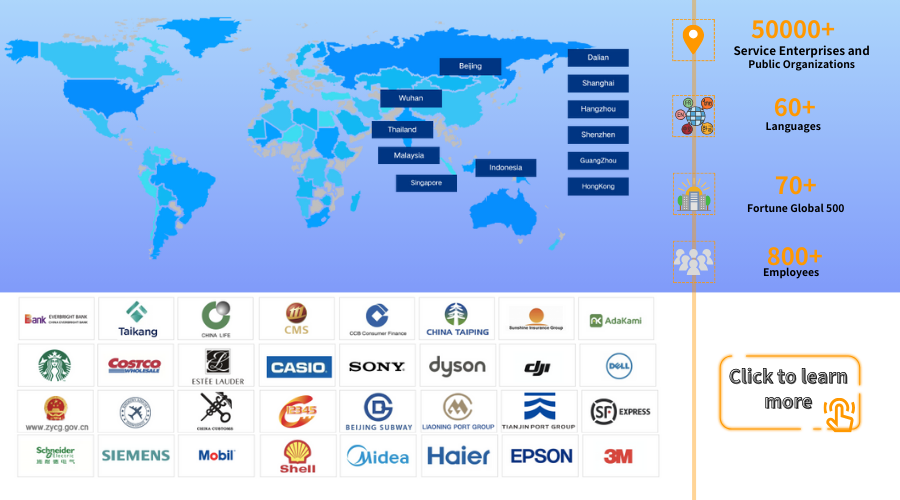21 Chatbot Use Cases For Different Industries
Article Summary:Let's take a look at 21 examples of how chatbots are being applied across various industries to enhance services and drive efficiency.
Chatbots are becoming increasingly prevalent across different industries as more companies recognize their value and potential for improving customer experience. While early chatbots were limited in their capabilities, modern AI-powered chatbots can understand natural language, learn from interactions, and provide highly personalized assistance to users.
Let's take a look at 21 examples of how chatbots are being applied across various industries to enhance services and drive efficiency:
- Retail - Chatbots are commonly used on ecommerce websites and mobile apps to answer product questions, check order status, facilitate returns/exchanges, and provide personalized recommendations. This reduces customer support costs.
- Banking/Finance - Chatbots are handling basic account inquiries for many banks and financial institutions. Tasks like checking balances, transferring funds, paying bills can now be done via chatbot.
- Healthcare - In the healthcare sector, chatbots are helping with appointment scheduling, answering insurance questions, and providing symptom checkers. They can also issue reminders to patients.
- Travel - Chatbots are streamlining many aspects of travel planning and management. Users can get flight/hotel booking assistance, receive travel updates, check-in for flights, and more through chatbots.
- Education - Chatbots are being adopted by universities and online education platforms to help students with course registration, academic advising, access learning materials, and address administrative issues.
- Utilities - Utility companies are deploying chatbots as virtual assistants for tasks like checking bills, changing account details, understanding payment options and outage updates.
- Telecom - Mobile carriers are using chatbots to help consumers with SIM card activation, plan upgrades, bill payments, technical support on connectivity issues and more.
- Government - Many governments worldwide are launching chatbots to simplify citizen services like application status tracking, document retrieval, address changes, license/permit renewal and general information access.
- Human Resources - HR chatbots can assist employees with payroll queries, benefits enrollment, time-off requests, training programs signups, workplace policies and other people-related tasks.
- Media/Publishing - Chatbots are being used by media houses to deliver news updates, recommend related content, answer FAQs and sell online subscriptions. They make content discovery seamless.
- Food Delivery - Leading food delivery platforms have chatbots that allow users to browse menus, customize & place food orders, track delivery status in real-time and manage account details and payments.
- Gaming - Game developers deploy chatbots to enhance player engagement through features like strategy recommendations, inventory management assistance, tournament signups, clan/guild management and more.
- E-commerce - Besides basic shopping assistance, ecommerce chatbots can power more advanced applications like visual search, voice shopping, AI-powered recommendations and seller support.
- Social Media - Social networks are introducing chatbots to moderate content, manage ad campaigns, provide customer care, enable polls/surveys and simplify content discovery for users.
- Logistics - Chatbots help with address validation, shipment tracking, delivery scheduling, customs clearance support, damage/loss reporting for logistics companies and their customers.
- Recruiting - Recruiters are leveraging chatbots for tasks like posting new jobs, screening resumes, scheduling interviews, onboarding paperwork and answering candidate queries.
- Automotive - Car manufacturers employ chatbots for sales assistance, service center appointments, recalls/updates, roadside assistance, insurance claim status and driving tips.
- Events - Chatbots can manage event registrations, schedule meetings/calls, promote sponsorships, handle payments and answer general queries related to conferences and exhibitions.
- Manufacturing - Factory operations are supported by chatbots that monitor equipment health, handle maintenance requests, track inventory levels, place procurement orders and address worker issues.
- Non-Profit - Non-profits can utilize chatbots to boost donor engagement through fundraising campaigns, impact stories, volunteer signups and addressing beneficiary needs.
- Property Management - Chatbots help property managers with tenant screening, rent collection, maintenance requests, access control, community updates and general facility management.
In summary, as chatbots continue advancing, their use cases will only multiply across more industries. Companies should explore creative ways chatbots can automate routine tasks and deliver personalized assistance to improve customer/user experience.
A great chatbot platform that enables building such versatile bots is Udesk. It provides low-code tools, powerful NLP capabilities and flexible deployment options to create advanced AI bots. Udesk's AI Chatbot can be integrated across websites, apps, messaging platforms and IoT devices. Their ability to understand intents, learn from interactions and take appropriate actions makes them highly effective virtual assistants. If you're looking for an all-in-one solution to develop intelligent bots for your business, I recommend checking out Udesk.
Take our AI Chatbot for a spin—for free—to see how it can work for your business.
The article is original by Udesk, and when reprinted, the source must be indicated:https://www.udeskglobal.com/blog/21-chatbot-use-cases-for-different-industries.html
AI ChatAI chatbotCustomer Service Chatbot

 Customer Service& Support Blog
Customer Service& Support Blog



